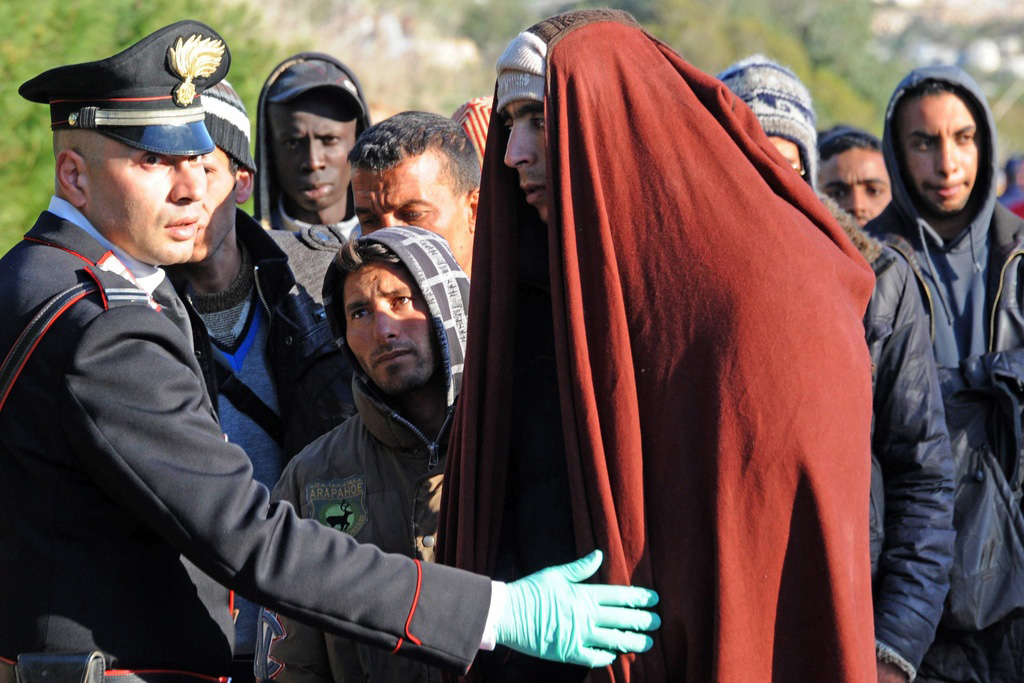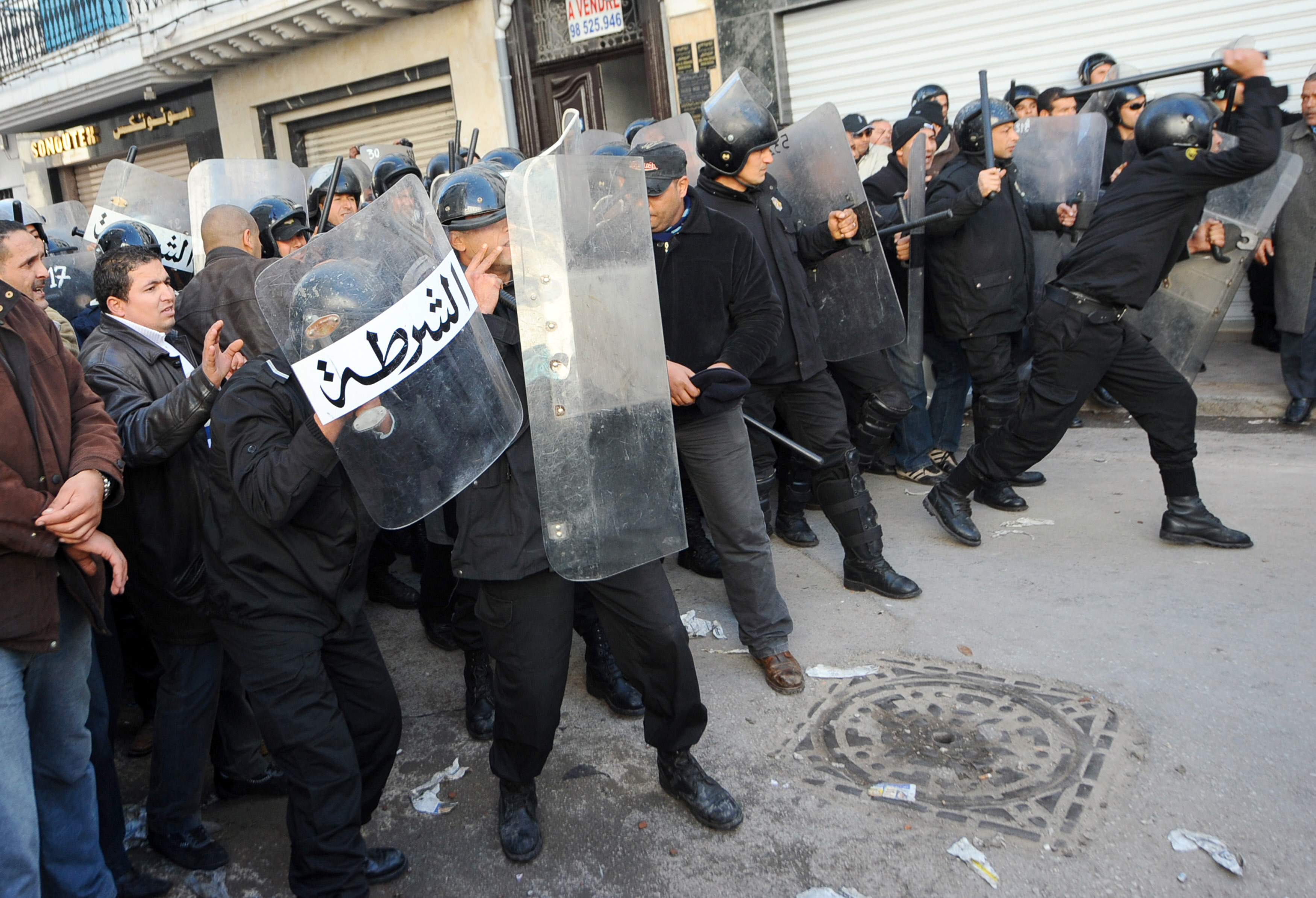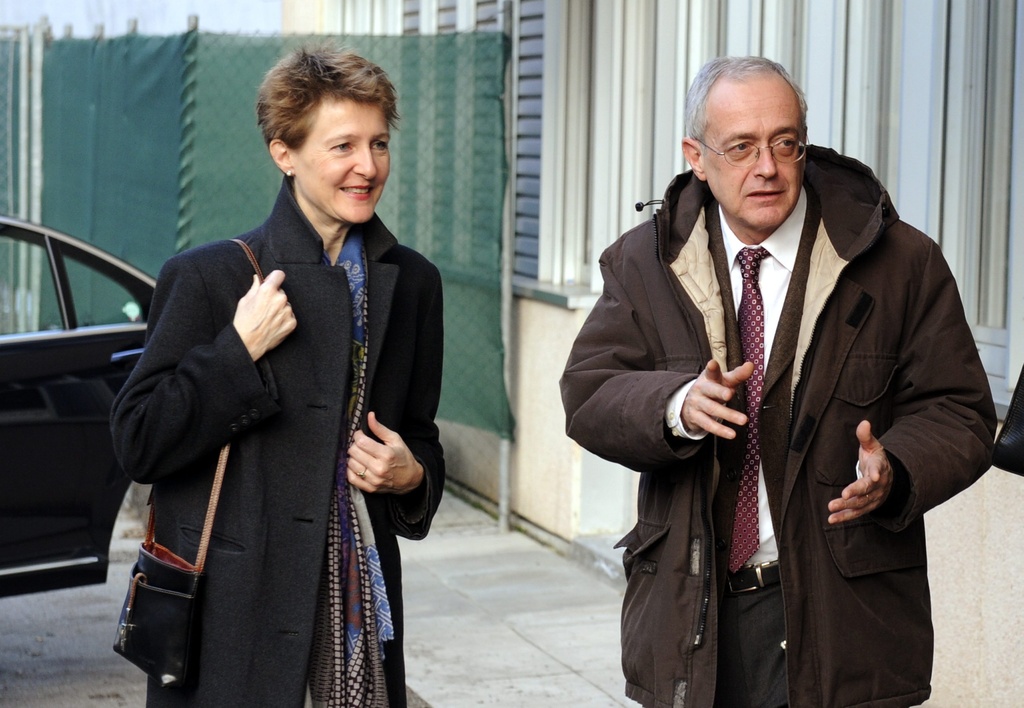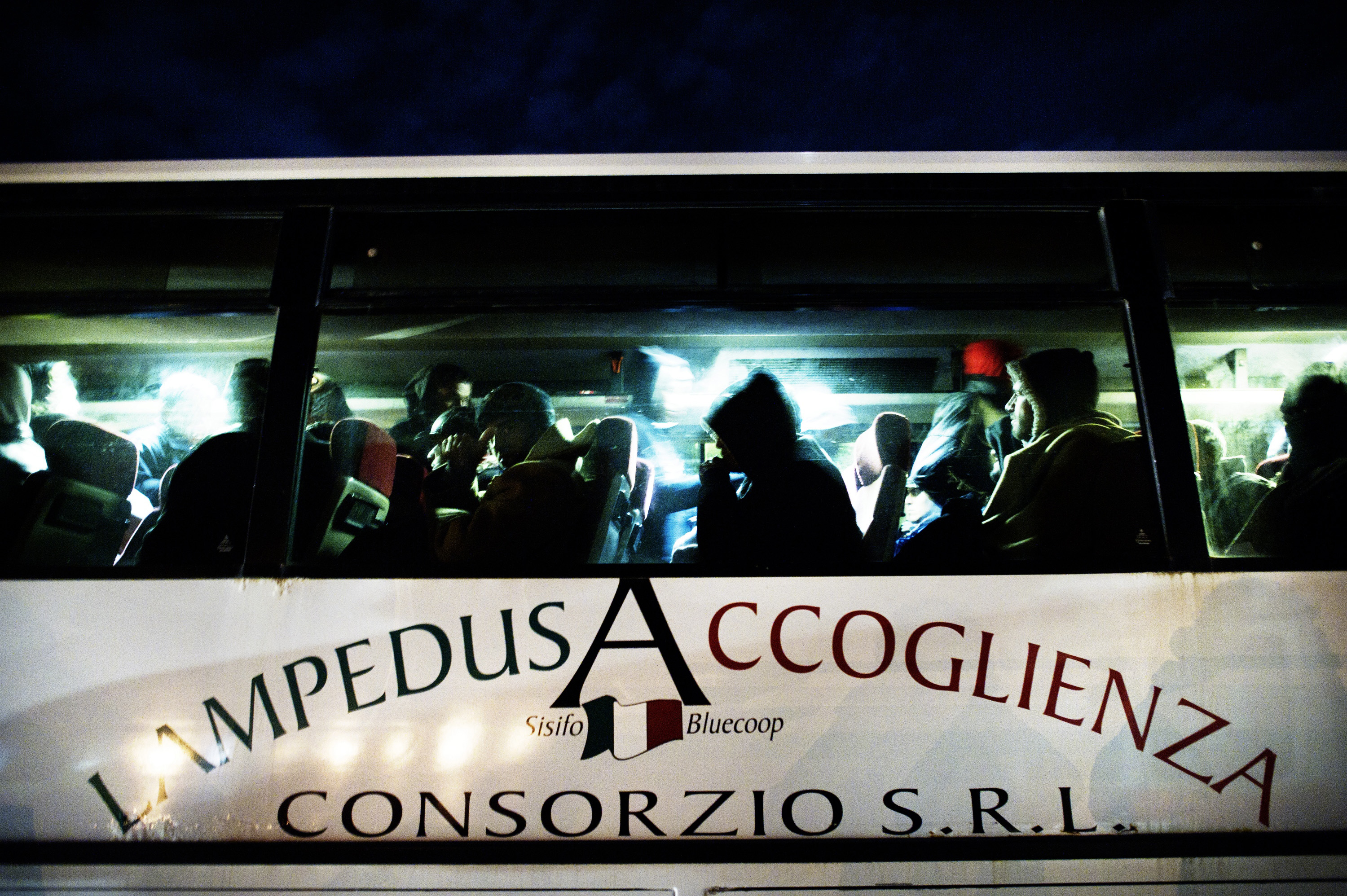Tunisian migrants put Switzerland on standby

Swiss authorities are watching closely to see whether some of the Tunisians who have recently poured into Italy might make their way to Switzerland.
Migration is one of the leading issues in the programmes of Swiss political parties as the country heads towards parliamentary elections in the autumn. Migration was also a major topic in debates at the World Social Forum which has just ended in the Senegalese capital, Dakar.
The recent political turbulence in Tunisia has made the question more urgent than ever. In the aftermath of last month’s popular uprising, the numbers leaving the country in the hope of getting to Europe have shot up.
In the space of five or six days some 5,000 illegal immigrants set off across the Mediterranean in makeshift boats and landed on the Italian island of Lampedusa, south of Sicily, which is much closer to Tunisia than to the Italian mainland.
Economic migrants
Favourable weather conditions and a lack of patrols along the Tunisian coast encouraged the migrants to leave in waves of at least a thousand at a time.
Most of them are young men who set off from southern Tunisia. The European authorities describe them as mainly economic migrants.
“We don’t yet know whether these people will try to get to France or Spain, or whether they will come to Switzerland,” Marie Avet, spokeswoman of the Swiss Federal Migration Office, told swissinfo.ch.
In any case, the situation is being closely monitored by the authorities in Bern and in the southern canton of Ticino, the normal point of entry for migrants arriving from Italy.
Contradictions
On Monday Swiss Justice Minister Simonetta Sommaruga, who recently visited the immigrant reception centre in the border town of Chiasso, announced that the authorities had already started to prepare “for a possible influx of refugees from North Africa”.
But the Federal Migration Office said that “no strategy has yet been implemented, given that it is likely to take about a month for asylum seekers from North Africa to arrive from Lampedusa”.
The head of the Migration Office, Alard du Bois-Reymond, told French-language Swiss radio that Switzerland needed to focus on two different areas, internationally, by cooperating with Frontex, the European agency for external border security, and domestically, by trying to ensure coordination between cantons and the confederation”.
Avet pointed out that Switzerland had never been a favoured destination for Tunisian refugees, who prefer to go to France.
Her view is shared by Jalel Matri, a member of the Association of Tunisians in Switzerland, and human rights activist.
“These people usually go to France, where they have a cousin or a friend. In general they don’t come to Switzerland, because they don’t know anyone, and the cost of living is too high.”
Nevertheless, the figures show that of all migrants entering Switzerland via its southern border, Tunisians come in third position, after Georgians and Nigerians, according to Davide Bassi, spokesman for the Ticino border guards.
Less than a week
The border guards in the canton are waiting for the first groups who reached southern Italy last weekend to make their way up to Switzerland.
“About 90 per cent of illegal immigrants from Africa who want to get into Switzerland try their chance by train,” Fabio Ghielmini of the Lugano region border guards told swissinfo.ch. The Milan-Chiasso line runs only a few metres from the registration centre for asylum seeks and from the Chiasso road border crossing.
“No specific measures are yet planned by the border guards” on the Ticino side, said Ghielmini. But he added that in an emergency, reinforcements from other parts of Switzerland could be dispatched to Ticino in two or three days.
Flood of criticism
Meanwhile the arrival of the Tunisians has sparked a number of spats. Italian Interior Minister Roberto Maroni has accused the European Union of “leaving Italy in the lurch”, and has asked for €100 million (SFr 130 million) to help the country cope.
The role of Libya has also been questioned. Jean-Philippe Chauzy, head of media at the International Organisation for Migration has said that “collaboration between Libya and Italy would have made it possible to stem the flood of migrants aiming for Europe”.
This view is shared by Claire Rodier, of the Immigration Information and Support Group (Gisti) in France, who has spoken of a “breach in the Mediterranean which could be linked to a relaxation of vigilance on the part of Libya”.
And in southern Switzerland, the chairman of the Lega dei Ticinesi party, Giuliano Bignasca, has called for a “concrete wall, four metres high, to be built between Switzerland and Italy, a country adrift, unable to manage influxes of migrants and criminality at the same time.”
The island is situated at 205 km from the Sicilian coast, and 113 from the coast of Tunisia.
It is the main island of the Pelagie group.
It has a permanent population of about 6,000 and an area of about 20 km2. Most of the population live in the only town, Lampedusa.
The main activities are fishing and tourism. Vegetation is sparse.
Since the end of the 1990s, Lampedusa has been a favorite target of would-be migrants attempting to cross the Mediterranean to Europe.
In 2008 more than 36,000 African asylum seekers landed on the island.
About 5,000 migrants have landed in Lampedusa since the start of the exodus triggered by the overthrow of the Tunisian regime in January.
At the beginning of the week starting February 14 there were about 2,000 migrants on the island, housed in a reception centre. Others had already been moved on to different places in Italy.
Poor weather conditions on February 14 and a reinforcement of border controls in Tunisia appeared to have stemmed the flow.
(Translated from French by Julia Slater)

In compliance with the JTI standards
More: SWI swissinfo.ch certified by the Journalism Trust Initiative




You can find an overview of ongoing debates with our journalists here. Please join us!
If you want to start a conversation about a topic raised in this article or want to report factual errors, email us at english@swissinfo.ch.